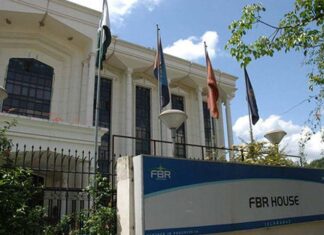DUBLIN: Ireland’s central bank governor Philip Lane said on Sunday that bad loans held by the country’s retail banks represent a “national systemic risk” in the event of an economic downturn.
The financial crisis wiped 55 percent off Irish property values between 2007 and 2013, leaving the banks with Europe’s largest stockpile of non-performing loans.
Ireland’s economy has recovered to clock the fastest growth in Europe for five straight years. But efforts to purge bad loans through a series of portfolio sales international distressed asset funds have slowed in the face of opposition from consumer groups.
“Even if the overall economy is firmly in recovery mode, the legacy of the crisis remains with us,” Lane wrote in Ireland’s Sunday Business Post.
“While many households and firms have sacrificed much to reduce debt levels over the last decade, the stock of non-performing loans is still too high and constitutes a national systemic risk in the event of a future downturn.”
The average current non-performing loan rate of 11.4 percent at retail banks is significantly lower than the 2013 peak of 32 percent but well above the European Union average of 3.6 percent.
Lane wrote that economic forecasts for national, European and global levels are for continued economic expansion, but risks remain.
“The latest assessments (including at our mid-December governing council meeting at the ECB) signal that the balance of risks is shifting to the downside,” he wrote.
“On account of the mixed signals about the momentum in the global business cycle and the extraordinarily high levels of policy uncertainty, with businesses and households expressing concerns about the future of the global trading system and, more locally, Brexit.”























